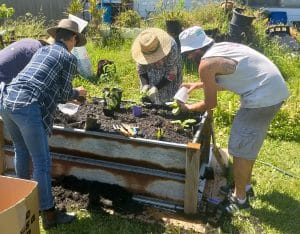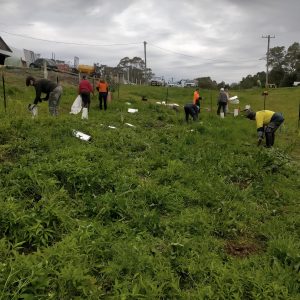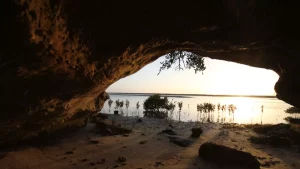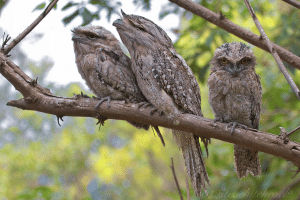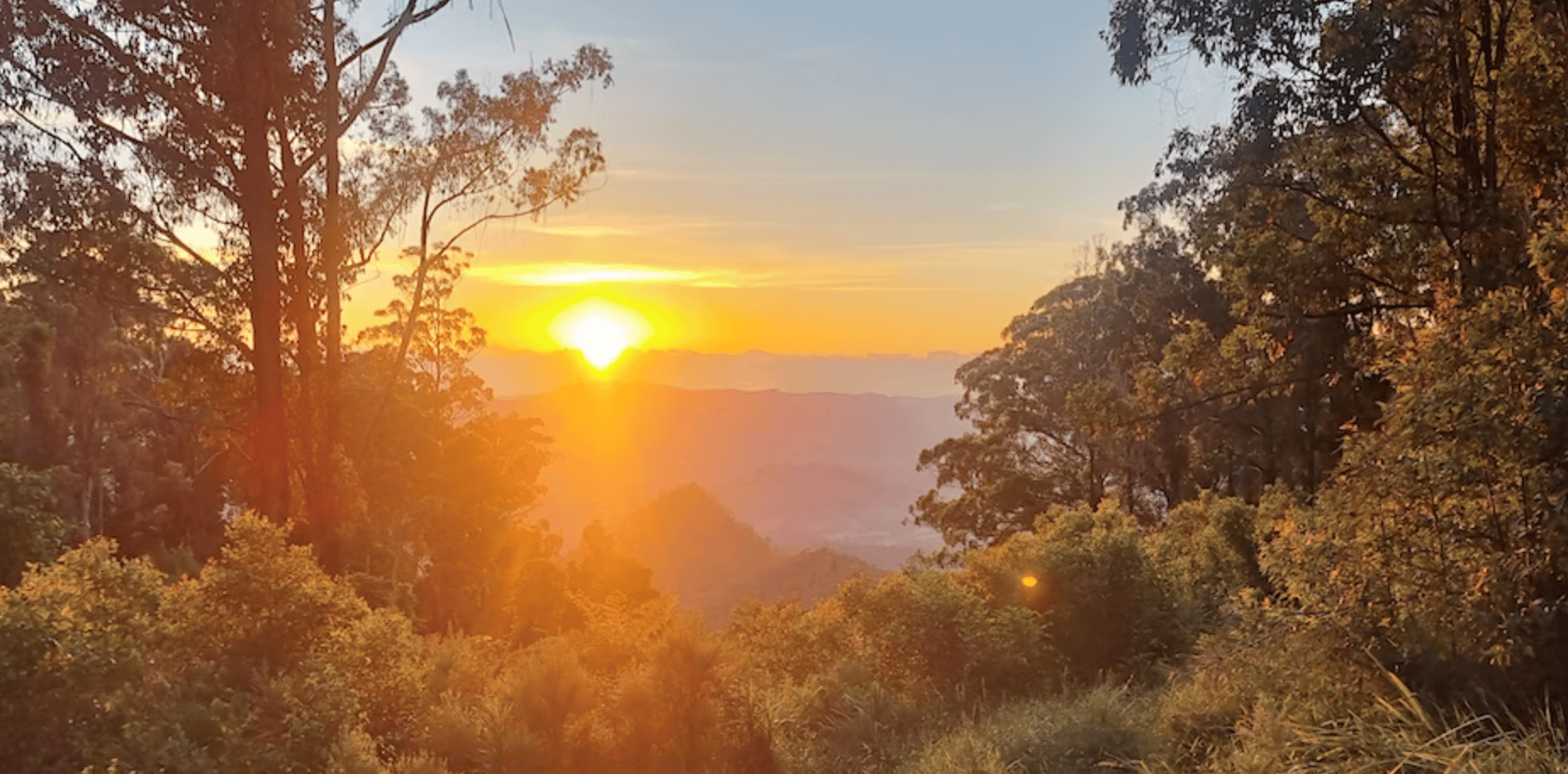
The final educational event for the 2022 PLC program in the MidCoast Region was held at the Pursch Conservation Property, Murrook on 11 November. Surrounded by Killabakh Nature Reserve, high on the Comboyne-Lansdowne Plateau, Alan and Helen purchased the property in 2020, about seven months after the Black Summer Bushfires. Most of their 220-hectare property was burnt during these fires, despite being largely occupied by rainforest.
Twenty-six people attended the field day and enjoyed hearing about Alan and Helen’s journey in the Conservation process, including an overview of the vast changes they have seen on the property since the fires. Named “Murrook” after the Gattang word for ‘good, happy’, the property has three partial boundaries with Killabakh Nature Reserve; with 79Ha mapped sub-tropical rainforest, 8Ha warm temperate rainforest and 135Ha of wet sclerophyll forest. Both Rainforest communities conform to the Lowland Rainforest in the NSW North Coast and Sydney Basin Bioregions Endangered Ecological Community under the Biodiversity Conservation Act 2016. The property is located within the regionally significant Coopernook – Killabakh – Comboyne wildlife corridor, and represents an important conserved remnant.
Alan shared the history of the property, which had a long period of log extraction, complete with snigging trails and log dumps. Alan and Helen are maintaining several of the trails to allow access for restoration works on the property, and to facilitate faunal movement through the property.
Jesse Gollan gave an overview of the voluntary Conservation Agreement process that is delivered by the BCT; followed by a brief overview of the SERA restoration standards and the importance of utilising reference sites when undertaking restoration works for habitat conservation, by Scott Meier from AABR.
The group then went for a walk through the rainforest, and then the Eucalypt forest near the top of the property, where there is now abundant post-fire regeneration of the New England Blackbutt, and other eucalypt species.
Lunchtime allowed participants to mingle and neighbours to meet one another before we bundled into 4WD mode and journeyed to a more remote part of the property where most of the regeneration works have been completed in a historical landslide area. This area was heavily logged and has probably been subject to multiple erosion events over time. But the recent heavy rainfalls have expanded the size and scale of the landslide, which is on very steep terrain, and largely inaccessible in terms of remediation.
Dingo Creek Rainforest Nursery has been contracted to complete the regeneration works, with Alan and Helen working tirelessly to manage infestations of Lantana, Tobacco, Crofton Weed and Passiflora. Despite the long history of disturbance, all the regeneration sites are progressing well with abundant natural regeneration occurring across the site.
Participants were able to learn about staging regeneration works on steep slopes; utilising native colonising species to stabilize areas, and when to plant in restoration projects. We were able to see healthy examples of the (Endangered) Manning River Solanum in flower and with fruit forming. The property also has Rhodamnia rubescens (Endangered) scattered through the edges of the rainforest.
The day was informative and enjoyable, and was a great opportunity for BCT clients and Land for Wildlife members to meet and share conservation experiences, and to engage with new people on the topic of private land conservation. “The networking on these field days and workshops is fantastic”.
This article is part of the Partnering in Private Land Conservation. A joint initiative delivered by Landcare NSW and the NSW Biodiversity Conservation Trust.
By Isabelle Strachen


